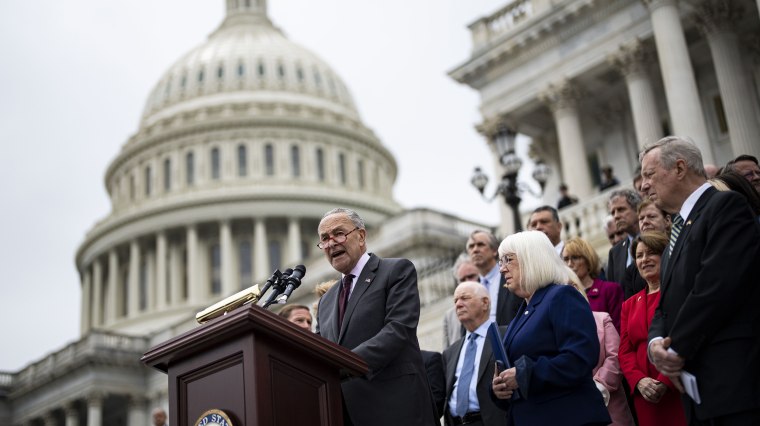In the wake of the leak of a draft opinion from the Supreme Court overturning Roe v. Wade, Rep. Sean Patrick Maloney, the chair of the House Democrats’ campaign arm, wrote a very bad tweet.
“Democrats: We’re angry and hurt, I know. But it’s not about filibuster, size of the court or what the Senate hasn’t passed. It’s about Republicans, not us. We can save our freedoms. But, it’s November, stupid,” his tweet reads.
What Maloney was attempting to do, in clunky and paternalistic language, was productively redirect the fury and betrayal that some on the left have expressed toward the Democratic party after they witnessed a preview of the likely end of federal protections for abortion rights.
Democrats are burying their head in the sand about the scope of our crisis.
But what he actually did was expose how the Democrats don’t actually have a plan. And if they don’t grasp the urgent need for sweeping reforms of the Supreme Court — and many other major political institutions and rules that have made the federal government unresponsive and unrepresentative — they’re going to lose again and again.
Maloney’s tweet is a bizarre bit of misdirection. “It’s November, stupid” seems to suggest that voters need only worry about showing up in big numbers for the midterm elections and fending off the likely bloodbath that Dems are going to face in the House and Senate. But that will bring us to … exactly where we are now.
The Democrats already control the White House, the House and the Senate. And if expanding the Supreme Court or eliminating the filibuster is not part of the solution, as Maloney seems to be suggesting, it’s utterly unclear what is.
Let’s say that Democrats surf the wave of fury over abortion and manage miraculously to cling to power despite inflation, the historical trend of a president’s party faring poorly in midterm elections, and a Senate map that structurally favors Republicans. Then what?
Passing federal legislation protecting abortion rights will not be possible without eliminating the filibuster. (Democrats will not have 60 seats, or votes, even if they retain control of the Senate in November.) Biden remains soft on the question of filibuster reform, and Sens. Joe Manchin and Kyrsten Sinema oppose filibuster reform, even on the issue of protecting abortion. So the Senate is a dead end.
The Supreme Court’s future looks bleaker. With a conservative supermajority that some analysts believe makes the court the most conservative it has been in about a century, the court will be hostile to abortion rights for the foreseeable future. Waiting for enough conservative justices to die coincidentally while Democrats control the White House and Senate, hopefully sooner rather than later does not constitute a political strategy for dealing with the extraordinary amount of reactionary power packed into the court.
When Biden entered the White House, progressives urged him to expand the Supreme Court and add liberal justices, something which the Constitution allows. Biden punted by setting up a commission of scholars to study the issue. Then that commission itself punted on the question of expansion. Top Democrats like House Speaker Nancy Pelosi have signaled opposition to legislation that would expand the court. And ultimately Democrats would need to form a filibuster-proof majority to pass legislation that allows the president to appoint more Supreme Court justices, again underscoring the necessity of abolishing it.
Democrats are burying their head in the sand about the scope of our crisis. It is not possible to fight the right without radically reevaluating and changing the terrain that gives it an advantage in every fight.
Democrats go on and on about the Republican assault on democracy — rightly so. Yet they have shown little passion for — let alone interest in — forging a consensus on dealing with the crisis presented by the status quo. The unrepresentative Senate, aided by the counter-majoritarian filibuster, has allowed for "minoritarian" domination in our federal government; the Supreme Court has become, through a combination of luck, long-term strategic effort by the right and Republican bucking of procedural norms, a powerful bastion of unelected and extremely partisan right-wing power.
If Democrats like Maloney keep simply demanding votes without proposing a real agenda for solving our crisis, they will pay for at election time. It will be hard to pass pro-democracy reforms within the next election cycle. But if the party recognizes the problem, works to make it a point of consensus and new lawmakers enter office ready to advance the program, it's possible to make gains over the medium term. It will also help build enthusiasm among voters who have rightly identified that our government isn't working very well.
The party must meet the moment in order to avoid another catastrophe: mass disenchantment and demobilization among its own constituents.

